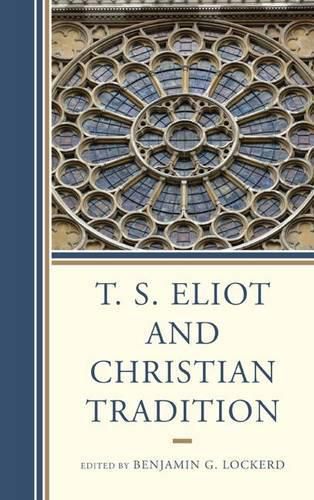T. S. Eliot and Christian Tradition

T. S. Eliot and Christian Tradition
T. S. Eliot was raised in the Unitarian faith of his family in St. Louis but drifted away from their beliefs while studying philosophy, mysticism, and anthropology at Harvard. During a year in Paris (1910-1911), he became involved with a group of Catholic writers there and subsequently went through a gradual conversion to Catholic Christianity. He surprised his brother during a visit to Rome in 1926, when he fell to his knees at St. Peter’s, and he surprised his Bloomsbury friends a year later when he was received into the Church of England, becoming an adherent of the traditionalist Anglo-Catholic wing of that church.
Many studies of Eliot’s writings have mentioned his religious beliefs, but most have failed to give the topic due weight and many have misunderstood or misrepresented his faith. More recently, however, some scholars have begun exploring this dimension of Eliot’s though more carefully and fully. The critics whose essays are collected here are among that group.
Here the reader will find Eliot’s Anglo-Catholicism accurately defined and thoughtfully considered. Several essays illuminate the all-important influence of the French Catholic writers he came to know in Paris. Prominent among them were those who wrote for or were otherwise associated with the Nouvelle Revue Francaise, including Andre Gide, Paul Claudel, and Charles-Louis Philippe. Also active in Paris at that time was the notorious Charles Maurras, whose influence on Eliot has been exaggerated by those who wished to discredit Eliot’s traditionalist views. A more measured assessment of Maurras’s influence has been needed and is found in several essays here. A wiser French Catholic writer, Jacques Maritain, has been largely ignored by Eliot scholars, but his influence is now given due consideration.
Contributors to the volume take account of Eliot’s intellectual relationship with such figures as John Henry Newman, Charles Williams, and the expert on church architecture, W. R. Lethaby. Eliot’s engagement with other contemporaries who held a variety of Christian beliefs–including George Santayana, Paul Elmer More, C. S. Lewis, and David Jones–is also clarified.
The keynote of Eliot’s cultural and political writings is his belief that religion and culture are integrally related. Several writers in this volume examine his ideas on this subject, placing them in the context of Maritain’s ideas, as well as those of the Catholic historian Christopher Dawson.
The book as a whole presents the subject of Eliot’s religious beliefs in rich detail, from a number of different perspectives, giving readers the opportunity to see the topic in its complexity and fullness.
This item is not currently in-stock. It can be ordered online and is expected to ship in approx 2 weeks
Our stock data is updated periodically, and availability may change throughout the day for in-demand items. Please call the relevant shop for the most current stock information. Prices are subject to change without notice.
Sign in or become a Readings Member to add this title to a wishlist.


